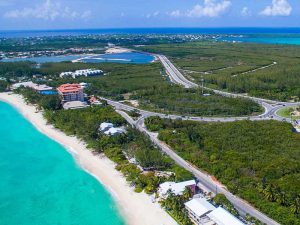Mutual Funds: A Comprehensive Guide to Investment Funds in the Cayman Islands
Investing in mutual funds has long been a popular choice for individuals and institutions looking to diversify their portfolios and potentially achieve substantial returns. The Cayman Islands, known for its robust financial sector, offers a favorable environment for mutual fund investment. In this comprehensive guide, we will explore the intricacies of Cayman mutual funds and investment funds, including their definitions, regulations, and common fund structures.
Definition of Mutual Fund in the Cayman Islands
In the Cayman Islands, mutual funds are defined by the Mutual Funds Act, which succinctly describes them as companies, trusts, or partnerships incorporated or managed within or from the Cayman Islands. These entities issue equity interests that are redeemable or re-purchaseable at the investor’s discretion. Their primary objective is to pool investors’ funds to spread investment risk and generate profits or gains from investments.
It’s important to note that this definition also includes hedge funds, making them subject to the Mutual Funds Act.
Can’t find the information you are looking for, use the
Cayman Islands GPT
Related Topics
Regulation of Mutual Funds & Fund Administrators
The Cayman Islands Monetary Authority (CIMA) plays a crucial role in regulating mutual funds and fund administrators. Not all mutual funds are regulated; those that do not meet specific criteria outlined in section 4(4) of the Mutual Funds Act are exempt from regulation. For regulated funds, CIMA oversees ongoing supervision through its Investments Supervision Division.
Categories of Regulated Mutual Funds
Licensed Mutual Fund: A mutual fund operating in the Cayman Islands typically requires a license, unless it meets certain criteria, such as having a licensed mutual fund administrator providing its principal office.
Administered Mutual Fund: Administered funds, with more than 15 investors, must have a CIMA-licensed mutual fund administrator providing its principal office.
Registered Mutual Fund: To be registered, a fund must have a minimum aggregate equity interest or have its equity interests listed on an approved stock exchange.
Master Fund: Master funds follow similar requirements as registered funds.
To verify whether a stock exchange is approved by CIMA, refer to the related policy and updated list on Regulatory Measures.
Standards of Regulation
CIMA regulates mutual funds and fund administrators in accordance with various acts and regulations, including the Mutual Funds Act and Mutual Funds (Annual Returns) Regulations, 2006. Additionally, they adhere to international standards set by organizations like the International Organization of Securities Commissions (IOSCO) and the Offshore Group of Collective Investment Scheme Supervisors (OGCISS).
Common Fund Vehicles
The Cayman Islands offers several flexible structures for establishing mutual funds, including:
Exempted Company: This structure allows for both open-ended and closed-ended corporate funds. Converting between the two is relatively straightforward.
Segregated Portfolio Company (SPC): An SPC can protect the assets of different groups within a single legal entity, providing effective risk management.
Unit Trust: Typically established under a trust deed, unit trusts hold investors’ interests as trust units.
Exempted Limited Partnership: This unincorporated vehicle offers ease of formation, similar to the exempted company or unit trust.
For more information on structuring a fund in the Cayman Islands, consult the Registrar of Companies or professional advisors.
Mutual Fund Administrators
Mutual fund administration encompasses the management and control of a mutual fund’s assets, as well as the provision of the fund’s principal office in the Cayman Islands. It also includes offering the operator role, which can be the director, trustee, or general partner of the fund.
Categories of Mutual Fund Administrators, CIMA considers applications from two types of Mutual Fund Administrators:
- Full Administrators: These administrators can manage an unlimited number of mutual funds, offering comprehensive services.
- Restricted Administrators: Restricted administrators are limited to serving a maximum of 10 funds, with each fund requiring approval from CIMA.
Cayman mutual funds and investment funds offer a wide range of opportunities for investors. Understanding the regulations, fund structures, and the role of mutual fund administrators is crucial when considering investment options in the Cayman Islands. Always seek professional advice and stay informed to make informed investment decisions in this dynamic financial landscape. For more information, please complete the inquiry form below:
This article was written with the assistance of AI driven insights and prompted by Fevi Yu, Our Web Administrator and Content Manager. It was edited by Cayman.com.ky Editor and resident of the Cayman Islands. All articles have been checked to ensure the information provided is accurate, most of our sources are Cayman government websites, Cayman Orgs or Associations. For additional information please email [email protected]






